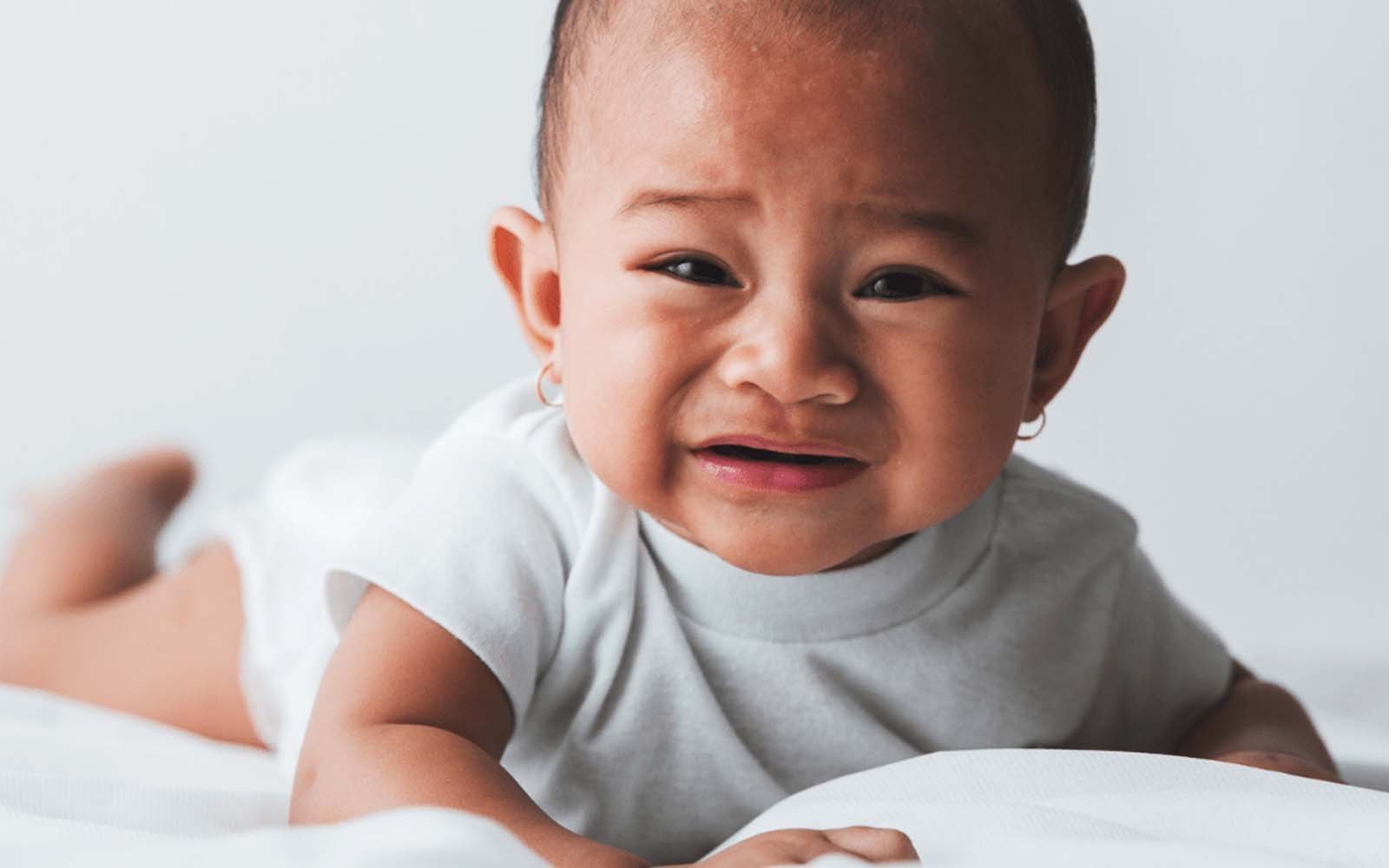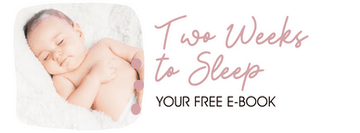
Does your baby hate sleep?
Hands up, who had said this before? "My baby hates sleep".
I can assure you that your baby or toddler does not hate sleep. In fact, hate is something that babies aren't even capable of doing, because it's a very mature emotion. If you're one of those people who candidly (or not so candidly) says "my baby hates sleep", then your baby is most likely crying when they go to sleep or they're refusing to go to sleep at all, perhaps napping for short stints or waking very frequently overnight.
This does NOT mean that they hate sleep.
Let's look at a few reasons why your baby (or toddler) might be fighting sleep:
They're overtired
If your baby is sleeping poorly, then it might seem like they hate sleep, when actually they're just very overtired. A baby who is overtired is going to go into their bed and cry and flap around, they're going to be unsettled and grumpy and probably fight you if you're trying to settle them to sleep. It's not that they hate sleep; sleep is actually the one thing that they really, really need in that situation. They just can't easily settle to sleep because they're so overtired.
To remedy this, you'd want to have a look at your baby's awake times between naps. If their awake time is too much for their age, they're going to be super overtired come nap time and will nap poorly as a result. It will also be really difficult to actually get them to sleep in the first place - so it can definitely seem like they "hate sleep".
Yes, I want more sleep!
If you need a helping hand with tackling your baby’s sleep, then check out our Pediatrician-recommended App.
Choose your Sleep Solution
For an overtired baby, we'd recommend swaddling them (if under 4 months), cranking up the white noise and settling them in a very dark room. Do whatever you can to get them to sleep! Then, trim back their awake time between naps to try and avoid that overtiredness in the first place. We can help you with the ideal awake times for your baby's age in our Little Ones App.
They're undertired
A similar thing can happen if your baby or toddler isn't ready for sleep yet, which is what we call "undertired". Undertiredness can occur if:
- your baby has already napped enough (or too much) for the day
- you're trying to put your baby to sleep too soon for their naps and at bedtime, when they haven't had enough awake time yet
If your baby is undertired, they don't hate sleep, they're just not ready for sleep.
It is really easy to get overtiredness confused with undertiredness as they can look really similar. Both can cause difficulties settling, short naps and unsettled sleep overnight! Getting the awake times right for your baby's age is crucial to avoiding both of these scenarios.
They are hungry or uncomfortable
A hungry baby won't settle or sleep no matter what you do! If your baby is very young, we would recommend looking at when their feed times are occurring in relation to their naps. Ideally, you want to ensure they're getting the chance for a big feed before they go to sleep, but not too close to their nap time or bedtime. If your baby is so sleepy that they don't take a big feed, you may find they are hard to settle or wake hungry again shortly after being put into their bed.
You also want to allow enough time to make sure your baby is winded really well after their feeds. A baby who has trapped wind will hate sleep, because they're uncomfortable and lying down exacerbates this.
There are too many other things to do
As your baby gets older and turns into a toddler, their FOMO (fear of missing out) really kicks in! So does their desire to play and be nosey. If your older baby or toddler is abruptly whisked away from their activity and put in their bed, they are going to protest because they didn't expect that sudden change and they were busy doing something else!
If there are toys or stimulating nightlights or mobiles in their nursery, you can guarantee they would rather look at these things than sleep, and this can make it seem like your baby "hates" sleep.
Having your little one in a predictable nap schedule is a great way to avoid springing naps on them unawares, and establishing a relaxing wind-down routine prior to naps and bedtime is the icing on the cake. Turn off those nightlights too and remove anything from their sleep environment that would be stimulating to your little one. Remember - they are there to sleep, not to play!
Say goodbye to sleepless nights.
Join over 800,000 families worldwide who are enjoying excellent sleep with our Sleep Programs, created by experts in the field of pediatric sleep.
Choose your Sleep Solution
They are protesting
Sometimes we hear people say "the second I walk into my baby's room, they start crying because they hate sleep and they associate their room with sleep". Well actually, it's not because they hate sleep. What is happening is they've made the connection that their room is the place where they go to sleep, which isn't a bad thing! It's a good thing that they're starting to make those connections and it means that your sleep associations are doing their job!
Once your little one understands that when they're in their room, they sleep, this can trigger some protesting at naps and bedtime - especially in older babies and toddlers.
If your baby or toddler is protesting when you take them into their room at naps and bedtime, it doesn’t mean they hate sleep. They might be going through a developmental leap or experiencing some separation anxiety that will pass with time.
Or, the protesting can be a sign that something else is amiss - they are overtired or undertired or they're still hungry, or they're uncomfortable, or their sleep environment is too stimulating. They're just not able to go into their room and get in the zone for sleep.
They are "grizzlers"
What can also happen, and it happened with my eldest child, is some babies just grizzle when they're going to sleep, no matter what you do! You might even be actively settling them to sleep and they just grizzle the whole time. For some babies, this is how they unwind and release stress; they're just preparing themselves for sleep. These babies generally then go on to be toddlers and children who will just chat or sing to themselves when you put them in bed, while they're lying there getting ready to go to sleep.
This doesn't mean they hate sleep.
So, if you think your baby hates sleep because they're grizzling or crying, it could just be the way that they wind down for sleep. If they are otherwise happy during their awake time and are sleeping well once they settle, it’s likely nothing to worry about.
If you think your baby hates sleep because they're not sleeping well (or at all!), then that's something we can help with. It could be something in their daytime structure that needs changing, like their nap times or their awake windows, or maybe we need to start looking at the environment in which they're going to sleep. From there we can help with feeding recommendations and settling strategies that suit your family.
NO baby hates sleep. Babies want sleep, they need sleep and it's actually our job as parents to help them sleep and to help them get the best sleep possible for their age.
Let's get your little one's sleep sorted ASAP!Our award-winning Sleep Programs will solve your baby's sleep challenges in no time. Take advantage of our new low prices while they last!
Choose your Sleep Solution
Our Little Ones App can help with this by providing age-appropriate nap and feeding schedules, several gentle settling methods to choose from, comprehensive troubleshooting notes for when things don’t go to plan and support available from certified sleep consultants, day and night.
"The progress my daughter has made so quickly is nothing short of magical. Luckily my little one has always been a great night sleeper but I dreaded daytime naps. They were a constant battle that left me drained from the relentless bouncing to sleep and catnaps. As many parents do, I diligently watched for tired signs then scooped her up at the first yawn and put her to bed to avoid the dreaded overtired baby. But I was consistently faced with screams and tears that took a good half hour of bouncing to lull into sleep, only to have her wake up 30-45 minutes later. The Little Ones programme has helped me to understand my daughters sleep needs and to put her to bed when she is really ready for sleep. Now she actually protests until I leave the room then happily turns over puts her thumb in her mouth and independently goes off to sleep - for every nap, every bed time and between sleep cycles. I know now that my baby wants to sleep, and wants to do so independently and Little Ones has helped her to learn this vital skill. Thank you for creating such a comprehensive, easy to follow, scientifically grounded programme. We will continue to follow the little ones programme into toddlerhood as I truly believe that this is the best framework for managing my daughters ever evolving sleep needs." - Larice
-------------
Bibliography
Gradisar M, Jackson K, Spurrier N, Gibson J, Whitham J, Williams A.S, Dolby R, Kennaway DJ. Behavioral Interventions for Infant Sleep Problems: A Randomized Controlled Trial
Coons S, Guilleminault C. Development of consolidated sleep and wakeful periods in relation to the day/night cycle in infancy. Dev Med Child Neurol. 1984 Apr;26(2):169-76. PubMed PMID: 6724155.
------------

Receive product and services updates, promotional offers and other marketing communications based.





